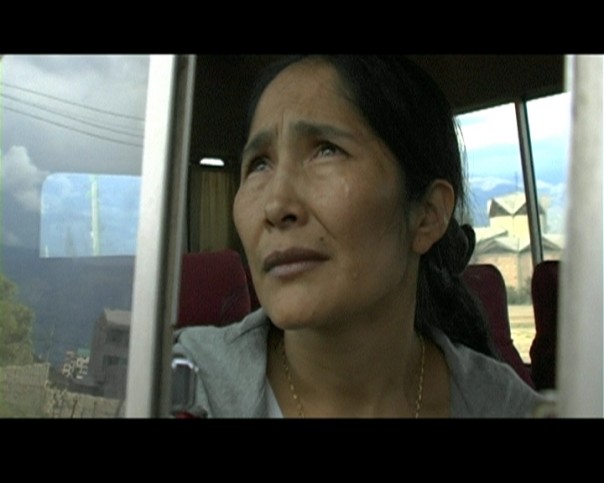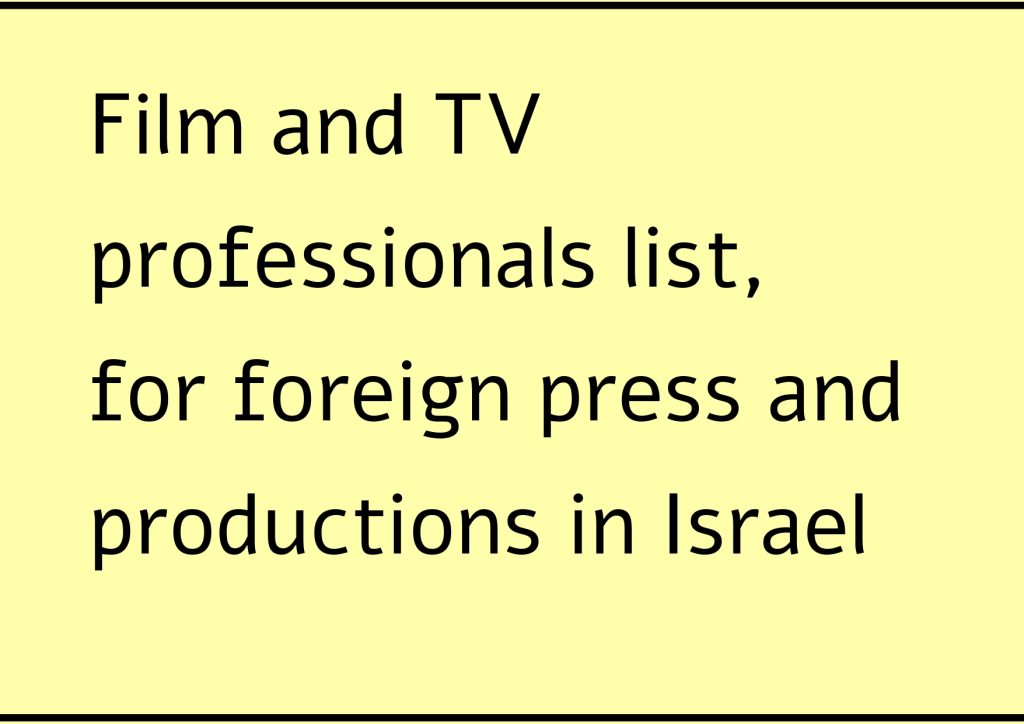A Working Mom
Search the Site
Newsletter Signup
Sign up to our newsletter to receive updates about what's going on at the NFCT
A Working Mom

In 1990, 22-year-old Marisa Villozial left her two small children with her parents in Bolivia and traveled overseas to look for a job in the West. She spent fifteen years doing hard menial labor in Israel, sending her pay home. In 2005, Marisa returned to Bolivia to reunite with her children and family, but was shocked to find her children, now 16 and 18, quite hostile towards her. With teary eyes she realizes that the money she’d sent to her father for the house had been squandered and her children’s lives made miserable. Her story reflects powerful and painful global themes: poverty, alienation and displacement in the new global economy and the plight of international migrant workers. This is a story which demonstrates the extremes to which individuals will go to in order to save their families.
Festivals and Awards:
Jerusalem International Film Festival, Israel, 2006; Women's Film Festival, Israel, 2006; Munich Documentary International Film Festival, Germany, 2007; Documenta, Madrid, Spain, 2007; L'Alternativa- Barcelona Independent Film Festival, Spain, 2007; Mediterranean Documentary Film Festival, Greece, 2007; Krakow International Film Festival, Poland, 2007; Amnesty International Film Festival, Canada, 2007
Director: Limor Pinhasov, Yaron Kaftori
Producer: Yaron Kaftori
Production Company: Cicero Films
Cinematographer: Eytan Harris, Oded Kirma
Editor: Limor Pinhasov
Original Soundtrack: Avi Lebovich
Supporter(s): The New Fund for Cinema and Television, The Second Authority for TV and Radio, ITVS
Distributor: Fortissimo Films, Catherine Le Clef
Subtitles: English
Film Name in Hebrew: אמא חוזרת הביתה
Category: Economy / Family / Identity / Immigration / Minorities / Women
Tag Words: Bolivia displacement globalization Israel migrant workers poverty third-world economies
In 1990, 22-year-old Marisa Villozial left her two small children with her parents in Bolivia and traveled overseas to look for a job in the West. She spent fifteen years doing hard menial labor in Israel, sending her pay home. In 2005, Marisa returned to Bolivia to reunite with her children and family, but was shocked to find her children, now 16 and 18, quite hostile towards her. With teary eyes she realizes that the money she’d sent to her father for the house had been squandered and her children’s lives made miserable. Her story reflects powerful and painful global themes: poverty, alienation and displacement in the new global economy and the plight of international migrant workers. This is a story which demonstrates the extremes to which individuals will go to in order to save their families.
Festivals and Awards:
Jerusalem International Film Festival, Israel, 2006; Women's Film Festival, Israel, 2006; Munich Documentary International Film Festival, Germany, 2007; Documenta, Madrid, Spain, 2007; L'Alternativa- Barcelona Independent Film Festival, Spain, 2007; Mediterranean Documentary Film Festival, Greece, 2007; Krakow International Film Festival, Poland, 2007; Amnesty International Film Festival, Canada, 2007

Director: Limor Pinhasov, Yaron Kaftori
Producer: Yaron Kaftori
Production Company: Cicero Films
Cinematographer: Eytan Harris, Oded Kirma
Editor: Limor Pinhasov
Original Soundtrack: Avi Lebovich
Supporter(s): The New Fund for Cinema and Television, The Second Authority for TV and Radio, ITVS
Distributor: Fortissimo Films, Catherine Le Clef
Subtitles: English
Film Name in Hebrew: אמא חוזרת הביתה
Category: Economy / Family / Identity / Immigration / Minorities / Women
Tag Words: Bolivia displacement globalization Israel migrant workers poverty third-world economies










 With the support of the Ministry of Culture - The Israel Film Council
With the support of the Ministry of Culture - The Israel Film Council